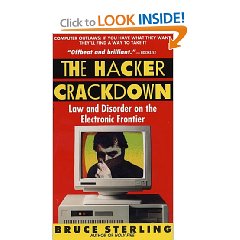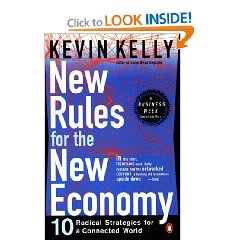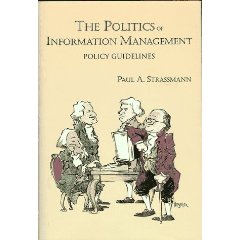Review: The Hacker Crackdown–Law And Disorder On The Electronic Frontier
5 Star, Asymmetric, Cyber, Hacking, Odd War, Culture, Research, Information Society, Information Technology, Justice (Failure, Reform), Misinformation & PropagandaUpdate of 31 May 08 to add links:
The Second Self: Computers and the Human Spirit, Twentieth Anniversary Edition
Hackers: Heroes of the Computer Revolution
Information Payoff: The Transformation of Work in the Electronic Age
Collective Intelligence: Mankind's Emerging World in Cyberspace (Helix Books)
The Unfinished Revolution: Human-Centered Computers and What They Can Do For Us
The Wealth of Networks: How Social Production Transforms Markets and Freedom
Collective Intelligence: Creating a Prosperous World at Peace

Review: The Second Self–Computers and the Human Spirit
5 Star, Asymmetric, Cyber, Hacking, Odd War, Best Practices in Management, Change & Innovation, Complexity & Resilience, Consciousness & Social IQ, Culture, Research, Information Operations, Information Society, Information TechnologyUpdate of 31 May 08 to add links:
THE HACKER CRACKDOWN: LAW AND DISORDER ON THE ELECTRONIC FRONTIER
Hackers: Heroes of the Computer Revolution
Information Payoff: The Transformation of Work in the Electronic Age
Collective Intelligence: Mankind's Emerging World in Cyberspace (Helix Books)
The Unfinished Revolution: Human-Centered Computers and What They Can Do For Us
The Wealth of Networks: How Social Production Transforms Markets and Freedom
Collective Intelligence: Creating a Prosperous World at Peace
Review: New Rules for the New Economy
5 Star, Best Practices in Management, Capitalism (Good & Bad), Complexity & Resilience, Culture, Research, Economics, Information SocietyReview: The Politics of Information Management–Policy Guidelines
5 Star, Capitalism (Good & Bad), Complexity & Catastrophe, Culture, Research, Executive (Partisan Failure, Reform), Information Operations, Information Society, Information TechnologyMany of the cartoons published in the Irreverent Dictionary came from this book, and I was among those who suggested to Paul that he should publish the cartoons separately. They were, however, essential to this otherwise intimidating book that is nothing less than an operating manual for the Captain of the Virtual Network. The bottom line that I took from this book is that Kevin Kelly is right, our national and international information systems are “out of control” and our policy leaders have abdicated their responsibilities to technicians who do not have the political, economic, or common sense of two ducks and a chicken. As Paul alludes in one of his footnotes, the Network today is somewhat in relationship to the “horseless carriage” stage of the automobile, and we have a very long way to go before policy helps make computers as user-friendly and reliable and interoperable as the telephone and the automobile are today.









